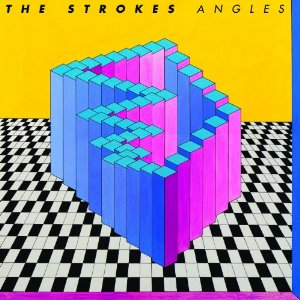New York, the autumn of 2002, and I’m sat in a Lower East Side bar. It’s a vaguely trendy place, but not painfully so, thanks largely to the rather taciturn Irish American staff who have no truck with trucker caps. Back in London, Strokes mania is still high, fuelled by the release of the band’s debut album the year before. In New York, though, people are too self aware to acknowledge the presence of one of the band when he walks into the bar, a lady in tow.
The Stroke, who appears tired and emotional, enjoys a drink and a game of pool at the table at the back of the bar. It being New York there is only one loo on the premises, and the band member takes it upon himself to relieve his aching bladder into the corner of the bar, behind the excellent free jukebox. This does not go down well with the Irish barman, who stomps over with bucket and mop. Despite hands raised in a protestation that suggests "do you know who I am", our hapless musician is forced to clean up his puddle, and swiftly ejected into the New York night.
The incident was probably the moment that my brief love affair with The Strokes ended for good, smacking as it did of unbridled, selfish arrogance and dilettantism. Musically, what The Strokes have achieved since has been a similar, orangey micturition, delivered in the wrong place at the wrong time. I’m no hater, either. When they first appeared, I was one of those who bought that jukebox only ‘Last Night’ 7" and played it to death. It’s certainly ludicrous to suggest (as the Observer did in their recent hagiographic interview) that in 2001 the musical landscape was bleak (after all, The Fall had released The Unutterable the year before) but if you had a penchant for handsome and well-dressed young men playing songs about sex, and updating the music of the 70s for a contemporary mainstream audience, then they were about the best thing to come along since Suede, and possessed of a louche effeminacy that the scrag end of Britpop had squished under its Adidas trainer. But their debut album Is This It was a wasted opportunity, and subsequent gigs disappointing. A friend and I won tickets to their first Brixton Academy show in a dancing contest (this is true) but after being subjected to less than an hour of flaky flapping in that cavernous room were left wishing we’d taken the £200 offered by touts outside. The Strokes became a lesson in how music made by dapper young men playing songs about sex is often, if not always, as unrewarding as sleeping with them. And so it has continued, with the unflappable, unfailing support of the music and broadsheet press, who jump on every utterance and mediocre side project with unflinching glee.
So to Angles. This is a record produced in circumstances as weary and depressing as that jukebox widdle, with the rest of the band going into the studio to record music for supremely deluded and self-important singer Julian Casablancas to sing over at a later date. Guitarist Nick Valensi has described the process as "awful" adding "I feel like we have a better album in us, and it’s going to come out soon." Well then, why on earth did you bother? Because Angles isn’t the worst record out this year, but it is certainly one of the most vapid and indulgent. The Strokes have made an effort to update their sound (New Wave fuzz gone intricate; a surfeit of treble) but by and large they’ve done this by attempting a classic pop rock gloss that’s more Mr Sheen than chrome and cocaine. So ‘Two Kinds Of Happiness’ is Cars’ ‘My Best Friends Girl’ with all the joi de vivre sucked out, interludes of "oooh" vocals that bring to mind some of the groups that have stolen The Strokes’ King Of The White American Men With Guitars crown over the past ten years.
‘Taken For A Fool’ is dire cod reggae, ‘Under Cover Of Darkness’ includes the lyric "everyone’s been singing the same song for ten years" in perhaps a rare moment of self-awareness from Casablancas. In the final track, he even sings "What’s the point?" ‘Gratisfaction’ is like Mud, both the band and the stuff you step in on a country walk; while ‘Call Me Back’ does indeed sound as if Casablancas dialled his vocal in from the depths of his bed, and it is probably the worst song any member of The Strokes has ever written. And that includes the bassist.
‘Metabolism’ just sees Casablancas yelling and drawling away in the fashion of a man wrapped in white and being loaded into the back of a van. There are two great moments, however, in the heavy coiled spring electronics of You’re So Right’ and the dreamy chorus of ‘Games’. Yet both tracks see The Strokes losing enthusiasm with a sigh, and reverting back to the paper thin sound they’ve relied on for ten years now. Where can they go from here? Perhaps it’s unfair to expect a band who made their name, sound and media reputation out of being feckless post-modernists to attempt anything genuinely bold and forward-thinking. But even on their own terms, Angles is a moribund record, joyless, lazy, lacking in vigour and vim. Entirely flat, then.


